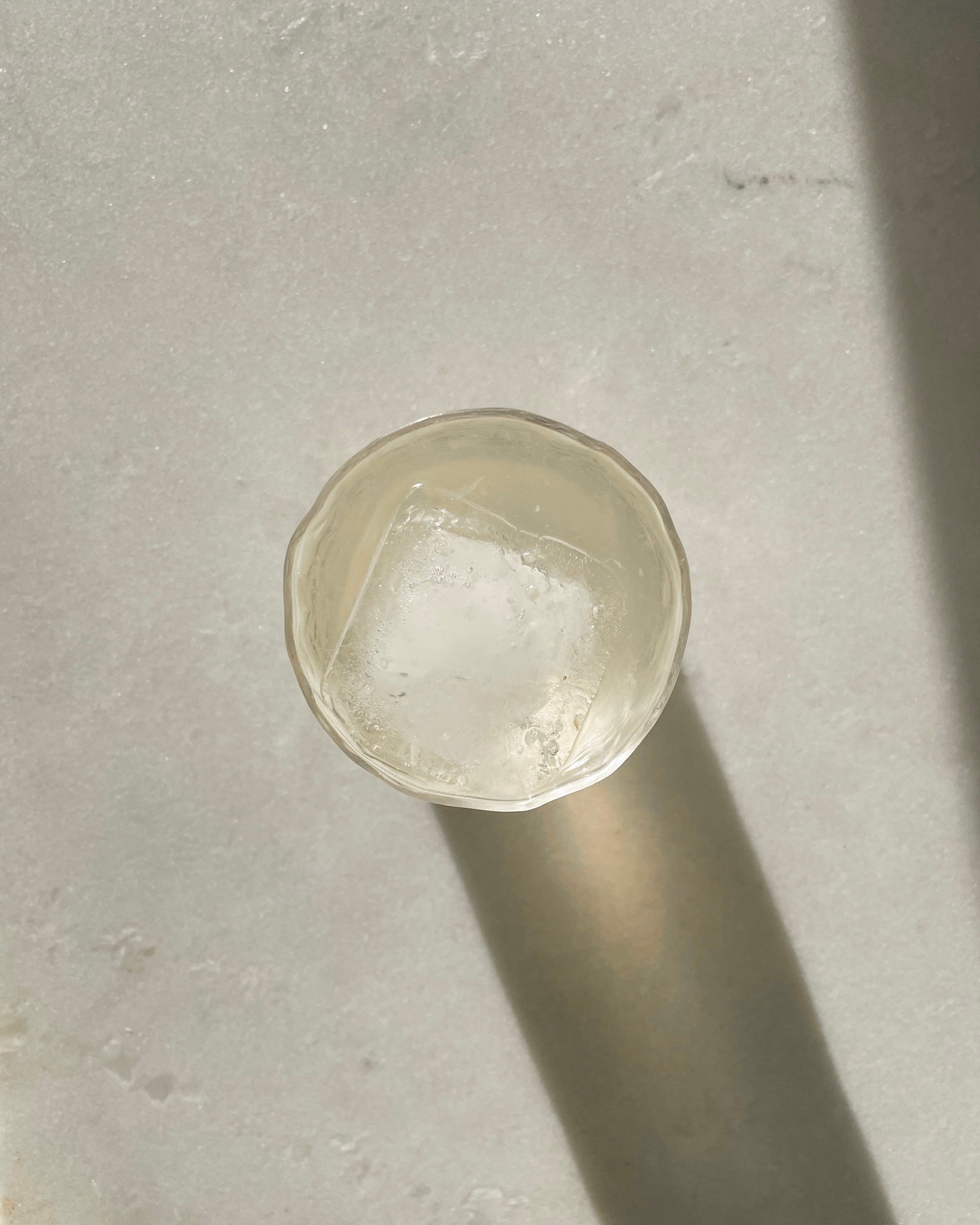In today's post, you will learn how you can use vinegar to stabilize your blood sugar. Do you recognize yourself in a rollercoaster blood sugar, difficulty getting up in the morning, PCOS, infertility, mood swings, sweet cravings between meals and hungry even though you just ate? Then you will love this post. Blood sugar can be linked to these symptoms.
What is vinegar?
Before we dive deep into what vinegar is, a tip is to read Stabilize your blood sugar to optimize ovulation and fertility to understand what we are referring to when we write glucose, carbohydrates and sugar. Today's post is based from the book Glucos Revolution . If you want to dive deep into understanding between blood sugar and diet, we strongly recommend reading the book where you will learn simple tips that you can use in your everyday life that can make a big difference to your blood sugar.
We think we start with the basics and simply explained , vinegar is alcohol that has been fermented into acetic acid . For example, if you leave a glass of wine out for a few weeks, it will have been converted into vinegar, which happens by the alcohol combining with air and bacteria. It is acetic acid that contributes to the sour taste.
Which vinegar should I choose?
There are different types of vinegar such as apple cider vinegar, rice vinegar, coconut vinegar and white wine vinegar. The good news is that you can choose almost any vinegar as they all contain acetic acid which helps balance glucose levels. The ones you should avoid are balsamic vinegar or various vinaigrettes that contain added sugar. In the book, apple cider vinegar is recommended, especially as the taste is better than other vinegars when you mix it in a glass of water.
We prefer apple cider vinegar as it has also been shown to have several other positive health benefits such as:
- Contains nutrients such as magnesium, antioxidants and amino acids
- Can positively affect digestion and reduce swelling
- Contains probiotics that can help strengthen the immune system
How does vinegar affect blood sugar and what happens in the body?
As we mentioned earlier, vinegar contains acetic acid. For example, when we eat bread , the bread you eat is converted into glucose (sugar) in the mouth thanks to an enzyme called alpha-amylase. Researchers have seen that acetic acid temporarily inactivates alpha-amylase, which means that sugar and starch are converted more slowly into glucose, which means that you will get a smoother and more even peak in blood sugar.
Another reason why vinegar can have a positive effect on blood sugar is that when acetic acid reaches the bloodstream it penetrates into our muscles, where it encourages our muscles to produce glycogen faster than it normally does which in turn leads to the body being able to absorb glucose more effective.
These two parts: The fact that glucose is released more slowly into the body and that our muscles take up glucose more quickly simply means that there is less glucose circulating freely in the bloodstream, which means that the blood sugar does not rise to the same extent.
The research behind blood sugar and vinegar
The positive effects of consuming vinegar are many. Vinegar has been shown to have a positive effect by reducing glucose levels in the blood and thereby stabilizing blood sugar. A stable and balanced blood sugar can be crucial when it comes to hormones and fertility. Adding vinegar to your diet has been shown to work both in people who do not have diabetes or problems with insulin sensitivity, and in those who have diabetes: both type 1 and 2. Note : If you take insulin shots, it is important to talk to your doctor before make some lifestyle changes to be able to adjust the amount of insulin based on that.
What has been seen in studies is that when participants drank a glass of water mixed with vinegar before a carbohydrate-rich meal, the glucose peak (that is, how much blood sugar rises) was reduced by between 8-30 percent. To understand how this happens, there is an important point we must not miss, namely that the amount of insulin also decreases when vinegar is consumed before eating (in one study up to 20%). This means that when we drink vinegar before a meal, it can help smooth out the glucose curve while not increasing the amount of insulin in the body.
PCOS, blood sugar and vinegar
An interesting (but small) study of seven women who had PCOS showed that consuming vinegar reduced their PCOS symptoms . The women consumed 15 g of apple cider vinegar daily for 90-110 days. Parameters measured in the study were luteinizing hormone (LH), follicle stimulating hormone (FSH), testosterone, ovulation and length of menstrual cycle before and after consuming vinegar.
What the study showed was that:
- Insulin levels decreased in six of seven patients
- The ratio of LH to FSH decreased in five of seven patients
- Ovulation occurred within 40 days in four of seven patients
The conclusion from the study is that there may be a positive relationship between vinegar and being able to push through ovulation in PCOS patients through improved insulin sensitivity.
In what situations should I take vinegar?
If you have problems with e.g. insulin sensitivity, type 2 diabetes, PCOS, difficulty losing weight or menopausal symptoms or other common symptoms linked to an unbalanced blood sugar such as mood swings, PMS, brain fog, fatigue or a sweet tooth, you can use this tip. For example, if you know that you are going to eat a meal, a dessert or a snack that contains a lot of sugar or starch such as pasta, white rice, pastries, dates, sweets or something else high in carbohydrates, you can simply drink a glass of vinegar before to be able to reduce the effect on blood sugar.
A reminder to take with you is that the body is fully capable of coping with fluctuations in blood sugar in the form of a dessert, an ice cream, a bag of sweets or a croissant for breakfast, it is when we do things over time that it will have negative effect (then you can often feel the dips strongly if you are not used to big swings). Through, among other things, this simple tool, you can eat things you love without it having as great an effect on your blood sugar. In our eyes, this is a winning concept!
A parenthesis is that you can't vinegar your way out of a bad diet, vinegar helps balance blood sugar spikes but they don't erase them.
So, how do I drink the vinegar?
You simply drink a glass of water mixed with 1 tablespoon of vinegar before your meal. If you think it tastes strong, you can start with a teaspoon and gradually increase the amount to get used to the taste. A tip is to always drink your vinegar with a straw as it is an acid that can affect the enamel on the teeth (to be on the safe side).
The optimal thing is to drink the vinegar 1-20 minutes before your meal. It also works to drink during and up to 20 minutes after you eat (it works almost as well). Another way if you don't want to drink vinegar is to eat it in a salad as an appetizer before your meal.
Tips on simple ways to get vinegar into your diet:
- Mix it in a large glass of water or flavor it with lemon, cucumber or tea
- Drizzle apple cider vinegar on your salad
- Make different dressings with apple cider vinegar, for example in combination with olive oil, herbs and spices
Are there any negative effects of drinking vinegar?
You should not experience any negative effects or side effects if you choose potable vinegar (5% acid). Vinegar that you can clean with contains, for example, 6% acid. In the book, she describes that it is not recommended to drink vinegar for those with stomach problems, even if it is only a safety measure as there are no studies on this in particular. Vinegar should not harm the stomach lining as it is actually less acidic than gastric juice, lemon juice and Coca Cola. However, this is something you can pay attention to.
Now you may be wondering if there is a limit to how much vinegar you can drink? In the book Glucose Revolution , an example is given of a woman who drank 16 tablespoons of vinegar a day for 6 years, who had to go to the hospital because she had low levels of the nutrients potassium and sodium. So don't do it, it's way too much.
Can I drink vinegar when I'm pregnant or breastfeeding?
Most vinegars are pasteurized and safe to drink. Apple cider vinegar on the other hand is unpasteurized which can be a risk in pregnancy. Double check with your midwife to be on the safe side.
I've already eaten something that makes my blood sugar spike, is it too late?
It's no wonder that sometimes when the sweet tooth hits, it goes so fast that you completely forget to take that drink, but that's no problem, it's great to drink it up to 20 minutes after you've eaten something sweet or starchy.
In summary
So the bottom line is that adding vinegar to your diet by drinking it or as a salad dressing can help balance your blood sugar. This becomes possible as the vinegar causes glucose to be released more slowly in the body and our muscles take up glucose faster.
If you want to dive further into blood sugar, we recommend you read the following post: Stabilize Your Blood Sugar to Optimize Ovulation and Fertility , in that post we go over the basics of blood sugar: what it is, how it works, why balanced blood sugar is important, common symptoms of blood sugar being out of balance and what types of carbohydrates can be beneficial to eat.
If you like this post, we can recommend our blog post Tips to balance your blood sugar, where we share eight concrete tips for how you can balance your glucose levels (and thus blood sugar), we recommend you start there. The vinegar tip is one of the tips included there. Today's post is again based on the book Glucose Revolution.
Note: This blog post is for educational purposes. It is not intended to diagnose, treat or cure. If you have health problems, it is important to discuss them with an expert. We work closely with the Livakliniken , which is run by one of Womensync's external experts, Maria Särén, where you can turn if you are looking for advice. Please state "Womensync" when booking.
References
Inchauspé, J., 2022. Glucose revolution . Melbourne, VIC: Penguin Life.
Santos, H., de Moraes, W., da Silva, G., Prestes, J. and Schoenfeld, B., 2019. Vinegar (acetic acid) intake on glucose metabolism: A narrative review. Clinical Nutrition ESPEN , 32, pp.1-7. Available at: < https://doi.org/10.1016/j.clnesp.2019.05.008 >
Wu, D., Kimura, F., Takashima, A., Shimizu, Y., Takebayashi, A., Kita, N., Zhang, G. and Murakami, T., 2013. Intake of Vinegar Beverage Is Associated with Restoration of Ovulatory Function in Women with Polycystic Ovary Syndrome. The Tohoku Journal of Experimental Medicine , 230(1), pp.17-23. Available at: < https://doi.org/10.1620/tjem.230.17 >

